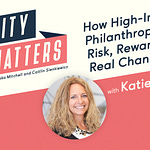Yesterday’s presidential inauguration showcased a fundamental pillar of democracy: the peaceful transition of power. This process, while political in nature, is deeply rooted in civic values that must be cultivated long before leaders take office. The role of K12 education in fostering civic values, was front and center during my recent interview with Dr. Patrick Wolf, a distinguished professor in education policy at the University of Arkansas.
Dr. Wolf’s emphasizes that schools must do more than improve test scores; they should instill civic virtues such as political tolerance, engagement, and respect for differing viewpoints. His meta-analysis of private and charter school effects on civic outcomes found that students in these environments often demonstrate higher levels of political knowledge and tolerance—qualities that are essential to maintaining a democracy where power transitions peacefully.
There are at least two dynamics at play in thinking about why school choice and civic outcomes are related. First, is educational pluralism—allowing families to choose from a diverse array of schools—which reinforces democracy by empowering parents and students to engage in decision-making. When individuals grow up making informed choices about their education, they are more likely to become active participants in civic life, whether through voting, public discourse, or community involvement. This engagement helps prevent polarization and ensures that democracy remains a process of debate rather than division.
Second is the importance of schools embracing difficult conversations. Dr. Wolf argues that avoiding controversial topics in public schools may inadvertently weaken democratic engagement. By contrast, private and charter schools—many of which operate with strong values-based missions—often create environments where students feel safe discussing opposing viewpoints. Encouraging respectful debate equips young people with the skills to navigate political transitions and disagreements without resorting to hostility.
As the nation reflects on this latest peaceful transition of power, the strength of our democracy depends on the education system’s ability to cultivate engaged, knowledgeable, and tolerant citizens. The work of scholars like Dr. Wolf reminds us that education is not just about academic achievement—it is about preparing the next generation to uphold the values that make democracy work.













Share this post